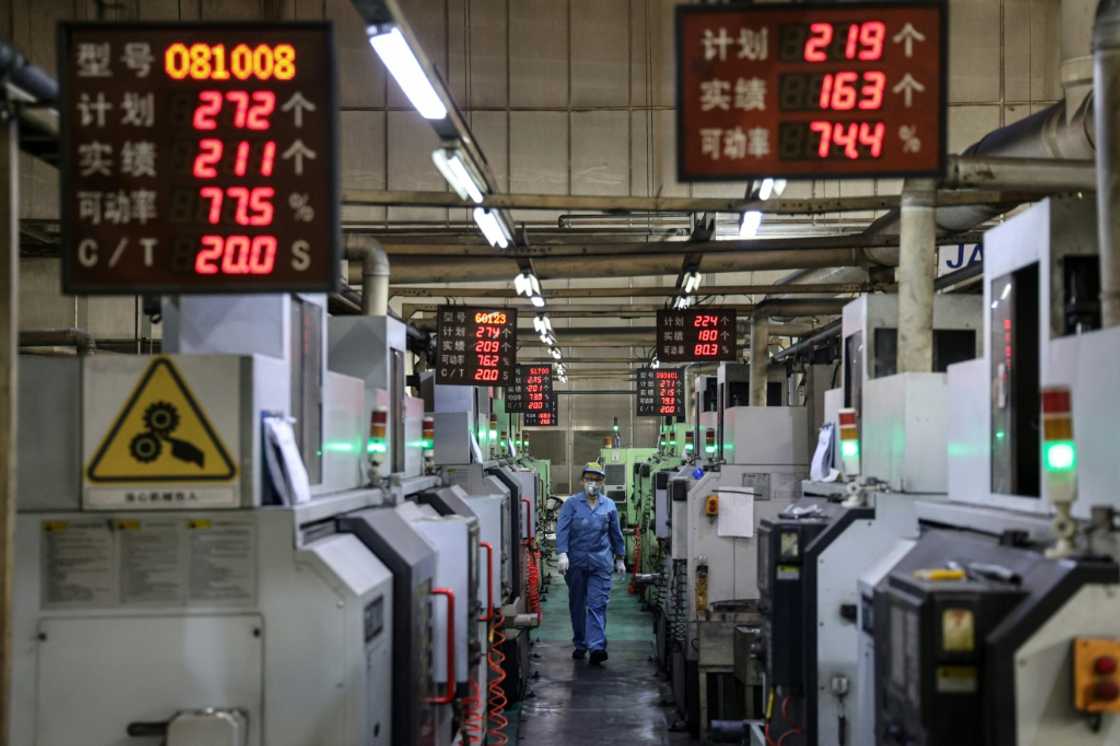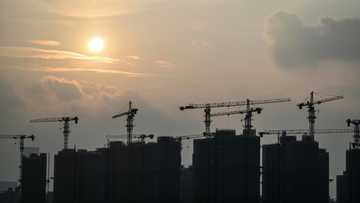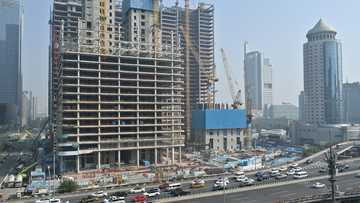China set to post slowest quarterly growth this year: analysts

Source: AFP
Don't miss out! Join Legit.ng's Sports News channel on WhatsApp now!
China's economy likely expanded at its slowest pace this year, according to an AFP survey ahead of data Friday, as authorities struggle to reignite consumption amid a chronic debt crisis in the property sector.
Officials have in recent weeks unveiled a string of measures to reignite the world's number-two economy and bring an end to years of depressed business activity with an eye to achieving five percent annual growth.
But after a blistering market rally fuelled by hopes for a long-awaited "bazooka stimulus", optimism has waned as authorities refrained from providing a specific figure for the bailout or fleshing out any of the pledges.
Officials on Friday will unveil figures for the third quarter, with analysts polled by AFP forecasting the economy to have grown 4.5 percent -- having expanded 4.7 percent in the previous three months and 5.3 percent in January-March.
"China's economy got a shot in the arm in September," said Harry Murphy Cruise, economist at Moody's Analytics, referring to the stimulus, but added that investors have been left "disappointed" by the lack of further announcements.
Beijing in September revealed a raft of measures to funnel cash into the economy including a string of rate cuts and loosened restrictions on home-buying.
But those supports "won't be enough" to correct woes in the property market -- once a key driving force in the Chinese economy, Murphy Cruise warned.
Analysts surveyed by AFP predict 4.9 percent overall growth in 2024 -- even worse than last year, which was the weakest in decades, outside of Covid.
Beijing has said it has "full confidence" that it will reach its target this year and revive the economy but analysts say officials must go further and inject new money before the end of the year.
The need for help has been highlighted by a long-running series of data releases pointing to sluggish consumer activity, tepid inflation, minimal growth in imports and surging youth unemployment.
'Promise fatigue'
On Saturday, Finance Minister Lan Fo'an said Beijing would issue special bonds to boost spending but provided no specific figures.
One analyst said there was now "promise fatigue" when it comes to addressing China's economic troubles.
"We've been disappointed in the past," said Francois Chimits, senior economist at the Mercator Institute for China Studies.
"What we're missing is a budgetary, potentially public finance type of effort."
Analysts warn that without major reforms to the economy that address deep-rooted issues of income inequality and social security, the economic uncertainty will continue to fuel a vicious cycle that has kept consumption stubbornly low.
That comes on the back of broader concerns about job security, income stability and property prices, according to Benson Wu, China and Korea economist at Bank of America Global Research.
The absence of incentives that encourage spending is a "key challenge" of China's economic recovery, Wu said.
Youth unemployment hit 18.8 percent in August, its highest in 2024.
"Consumer confidence (has) dropped, investors have turned cautious, and policy implementation has seen a decline in effectiveness," Wu said.
Spurring demand, particularly for homes, is also crucial for a sustainable recovery.
A number of major cities have eased house buying restrictions -- most recently in Chengdu, the capital of southwestern province of Sichuan, and the port city of Tianjin.
"The economy is still under the rubble of the housing collapse," Gene Ma, Head of China Research at the Institute of International Finance, told AFP.
While Ma said the most intense phase of the housing crisis is "probably over", Beijing's policies have been overly focused on addressing supply and not demand.
But analysts remain sceptical that a major policy shift will occur this year.
"Officials have promised to arrest the property market's fall, addressing what has been a key drag on sentiment for the better part of four years," Moody's Analytics' Murphy Cruise said.
"We'll believe it when we see it."
PAY ATTENTION: Сheck out news that is picked exactly for YOU ➡️ find the “Recommended for you” block on the home page and enjoy!
Source: AFP






